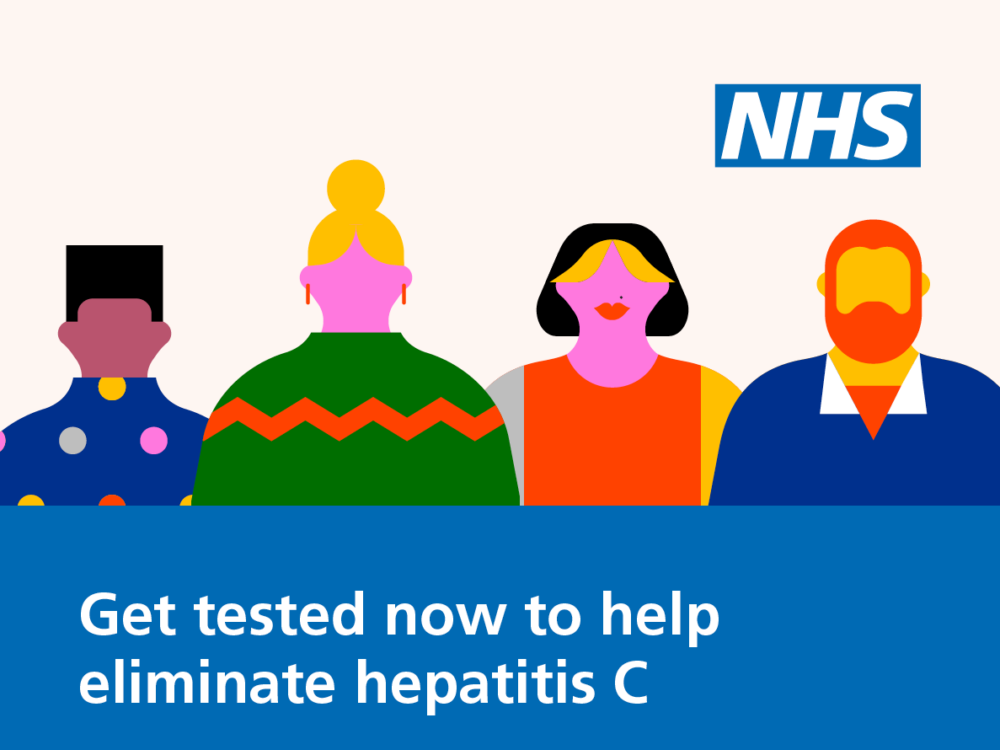With modern treatments however it is usually possible to cure the infection and prevent further damage to the liver.
It’s estimated that around 65,000 people in the UK remain infected with hepatitis C in 2022.
You can become infected with it if you come into contact with the blood of an infected person.
Symptoms of Hepatitis C
Hepatitis C often does not have any noticeable symptoms until the liver has been significantly damaged.
This means many people have the infection without realising it.
When symptoms do occur, they can be mistaken for another condition.
Symptoms can include:
- flu-like symptoms, such as muscle aches and a high temperature (fever)
- feeling tired all the time
- loss of appetite
- stomach ache
- feeling and being sick
The only way to know for certain if these symptoms are caused by hepatitis C is to get tested.
How do you become infected?
You can become infected with Hepatitis C if you come into contact with the blood of an infected person. Other bodily fluids can also contain the virus, but blood contains the highest level of it. Just a small trace of blood can cause an infection. At room temperature, it is thought the virus may be able to survive outside the body in patches of dried blood on surfaces for up to several weeks.
What are the causes of Hepatitis C?
You can become infected with Hepatitis C through the following ways:
High risk causes:
- Using Drugs: In the UK, Hepatitis C is commonly spread through sharing needles used to inject drugs and can also be spread by sharing other paraphernalia such as pipes.
- Blood transfusions before September 1996
- Blood transfusions and treatment abroad: Poor healthcare practices and unsafe medical injections are the main way Hepatitis C is spread outside the UK
- Unprotected Sex (particularly sex between men)
- Sharing toothbrushes, scissors and razors
Lower risk causes:
- Tattooing and body piercing
- Mother to child
- Needle stick injury
You cannot catch Hepatitis C from the following ways:
- Kissing
- Social contact, such as hugging
- Sharing kitchen utensils
- Toilet seats
Tests for Hepatitis C
If you think you may have been exposed to Hepatitis C, taking a test will put your mind at rest. If the test is positive there are treatments available to start from within a few weeks of being tested. The services outlined below all offer testing for Hepatitis C:
- GP Surgeries
- Sexual Health Clinics
- Genitourinary Medicine (GUM) Clinics
- Drug and Alcohol Treatment Services
- Home testing kits
Scan the QR code to request a home testing kit:

Treatment for Hepatitis C
Hepatitis C can often be treated successfully by taking medicines for eight to twelve weeks in most cases, the length of treatment will depend on the type of Hepatitis C you have. Hepatitis C is treated using Direct Acting Antiviral (DAA) tablets, DAA tablets are the safest and most effective medicines for treating Hepatitis C with more than 95% chance of cure.
How can you help?
- Make others aware of potential risk factors of getting Hepatitis C
- Do not treat people differently if they have the virus ‘not everyone acquires Hepatitis C through drug use’
- Signpost to testing who you think may have been exposed to risk
- Tell everyone treatment is tablet only which is accessed through specialist teams
- Take universal precautions if you come into contact with blood or equipment that maybe contaminated

